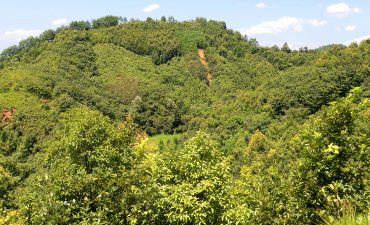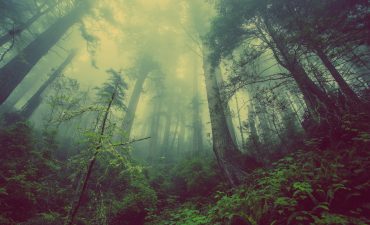Old forests go into weather extremes stronger
In a study by the University of Sustainable Development Eberswalde (D) and Writtle College (UK), the authors used thermodynamic theory to compare forest stands based on different parameters and to draw conclusions about the diversity and resilience of forest ecosystems.
Surface temperatures in stands in the UK, Germany and Ukraine were measured and tested for theories of energy depletion and temperature reduction. Resilient ecosystems have complex structures, high biomass and functional diversity. Forests that exhibited these three properties showed cooler surface temperatures even under extreme weather conditions.
Keep the cool
If a disturbance occurs in a forest, the complexity of its structures and functional networks is reduced, thus reducing the system’s ability to dissipate energy. This leads to higher surface temperatures, because the incident solar energy is less attenuated, as well as to impairment of ecosystem services and reduced ecosystem resilience.
The authors of the study conclude that old forests have lower surface temperatures than plantations of native tree species. Lower temperatures were observed in European primeval forests with high biomass shares than in managed stands of the same species composition. The difference became particularly clear with rising temperatures, as it is also expected in climate change.
Furthermore, the study concludes that primeval forests develop into competitive and stress-tolerant communities during their life cycle. In contrast, intensively managed forests have a higher proportion of generalists (species that are less specialised in terms of their environmental requirements) and species that are characteristic of heavily human-influenced forest communities.
From the study results it is concluded that conservation practices and management policies that preserve the complexity of stands can make an important contribution to climate protection, as such systems mitigate the effects of extreme temperatures and also improve climate regulation, primary production and water retention. They therefore assign primeval forests an important climate protection function.
Comment
The study by Norris et al. is one of a list of publications that emphasize the importance of old forests and especially of the last remaining primeval forests. Climate change and the associated more frequent and more severe weather extremes are already warning us to see forests not only as CO2-binders but also as complex systems to which we owe further ecosystem services and which are crucial for the preservation of the biodiversity of our natural areas. The cooling effect of old forests in particular benefits the surrounding landscape as well as urban areas close to forests. Long periods of drought can be better survived because such forest ecosystems retain more water, and the risk of forest fire is also greatly reduced in such near-natural systems. Investing in the preservation of old forests and the creation of future virgin forests means increasing the stress tolerance of our future ecosystems.
Source
Norris, C., Hobson, P. and Ibisch, P.L. (2012), Microclimate and vegetation function as indicators of forest thermodynamic efficiency. Journal of Applied Ecology, 49: 562-570.


